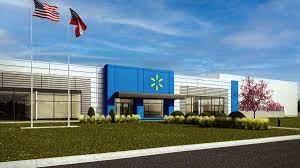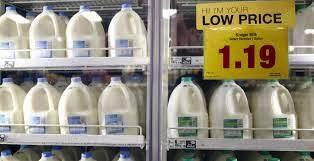 Walmart Stores Inc. has announced that it intends to erect a milk processing plant in Valdosta, GA. to serve close to 1,000 company stores in Georgia and adjoining states. The project will involve an investment of $350 million and should be completed by late 2025. Walmart maintains that the project is intended to “provide high-quality milk for their customers that can be offered at everyday low prices” according to Bruce Heckman, Vice-president for Manufacturing.
Walmart Stores Inc. has announced that it intends to erect a milk processing plant in Valdosta, GA. to serve close to 1,000 company stores in Georgia and adjoining states. The project will involve an investment of $350 million and should be completed by late 2025. Walmart maintains that the project is intended to “provide high-quality milk for their customers that can be offered at everyday low prices” according to Bruce Heckman, Vice-president for Manufacturing.
Walmart will source milk from producers in Georgia, but it is self-evident that Walmart will favor larger dairy farmers with close to 100 farmers milking more than 1,000 cows in the state. This will be to the disadvantage of small producers who are under financial pressure. High costs for feed and labor and other inputs have placed small dairy farms at a disadvantage compared to their larger competitors. This is evidenced by the seven percent decline in dairy farms in Minnesota during 2023. Minnesota is the sixth largest dairy producing state and lost 146 dairies during the year. During the mid-1950’s, the U.S. counted more than 5 million dairy farms that declined in number to approximately 30,000 by 2023.

The investment in a milk processing plant raises the question of whether in the future Walmart might extend the principle to eggs. Walmart draws eggs ranging from conventional caged white through to organic and pasture-reared to provide customers with products priced according to attributes. Walmart sources eggs from major producers including Cal-Maine Foods the nation's largest producer with 40 million hens. This company is heavily committed to Walmart but there is obviously a synergistic relationship that benefits both supplier and customer.
The move by Walmart parallels a long-standing involvement in dairy processing by competitor The Kroger Company. In some ways investment in production facilities follows the establishment of Lincoln Premium Poultry by Costco to supply rotisserie chickens for its warehouse stores.
Given the pricing power of Walmart with respect to sourcing eggs and the biological risks associated with disease, backward integration into egg production would appear unlikely.